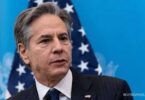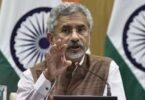F.P. Report
ISLAMABAD: The government on Thursday made a massive cut of Rs27.15 per litre in the price of high speed diesel (HSD) for the month of May 2020, following a dip in the global oil prices due to the coronavirus-induced lockdowns.
After the revision, the price of HSD will come down to Rs80.10 per litre as compared with the existing price of Rs107.25 per litre.
The Oil and Gas Regulatory Authority (Ogra) had proposed a decrease of Rs33.94 per litre or 31.6% in the price of HSD, which is mainly used in the transport and agriculture sectors. However, the government passed a relief of Rs27.15 per litre to the consumers. With start of the harvesting season, the demand of diesel has increased, which led the government to lift the ban on its import.
The government also reduced the price of petrol by Rs15 per litre against the proposed reduction of Rs20.68 per litre or 21.4%. Petrol would now be sold for Rs81.58 per litre as compared to Rs96.58.
Petrol is an alternative fuel for compressed natural gas (CNG) and is mainly consumed by vehicles in Punjab where local gas is not available and CNG retail outlets are run on comparatively expensive imported gas.
Also, the government reduced the price of light diesel oil (LDO) by Rs15 per litre. Ogra had suggested a cut of Rs24.57 per litre or 39.3% in its price, which is an industrial fuel. Following approval of the government, its price has come down to Rs47.51 per litre from Rs62.51.
The government also slashed the price of kerosene oil by Rs30.01 per litre. Ogra had proposed a reduction of Rs44.07 per litre or 56.9% in its price. Its new price is Rs47.44 per litre as against Rs77.45.
Kerosene is used for cooking purposes, especially in the far-flung areas where liquefied petroleum gas (LPG) or pipeline gas is not available.
In the tenure of the previous Pakistan Muslim League-Nawaz (PML-N) government, the petroleum levy was charged in the range of Rs3 to Rs10 per litre, however, GST was higher than the current rate.
As GST is shared with the provinces, the federal government has slashed the sales tax and has hiked the petroleum levy in a bid to collect more revenue for the federal purse to meet its high revenue requirement.
Since the current Pakistan Tehreek-e-Insaf (PTI) government came to power in August 2018, prices of petroleum products had gone up in the wake of the rupee’s depreciation against the dollar.
Pakistan is a net importer of petroleum products and meets almost 85% of its needs through imports. The rupee’s depreciation has played a key role in increasing petroleum product prices, which has fuelled inflation in the country.






